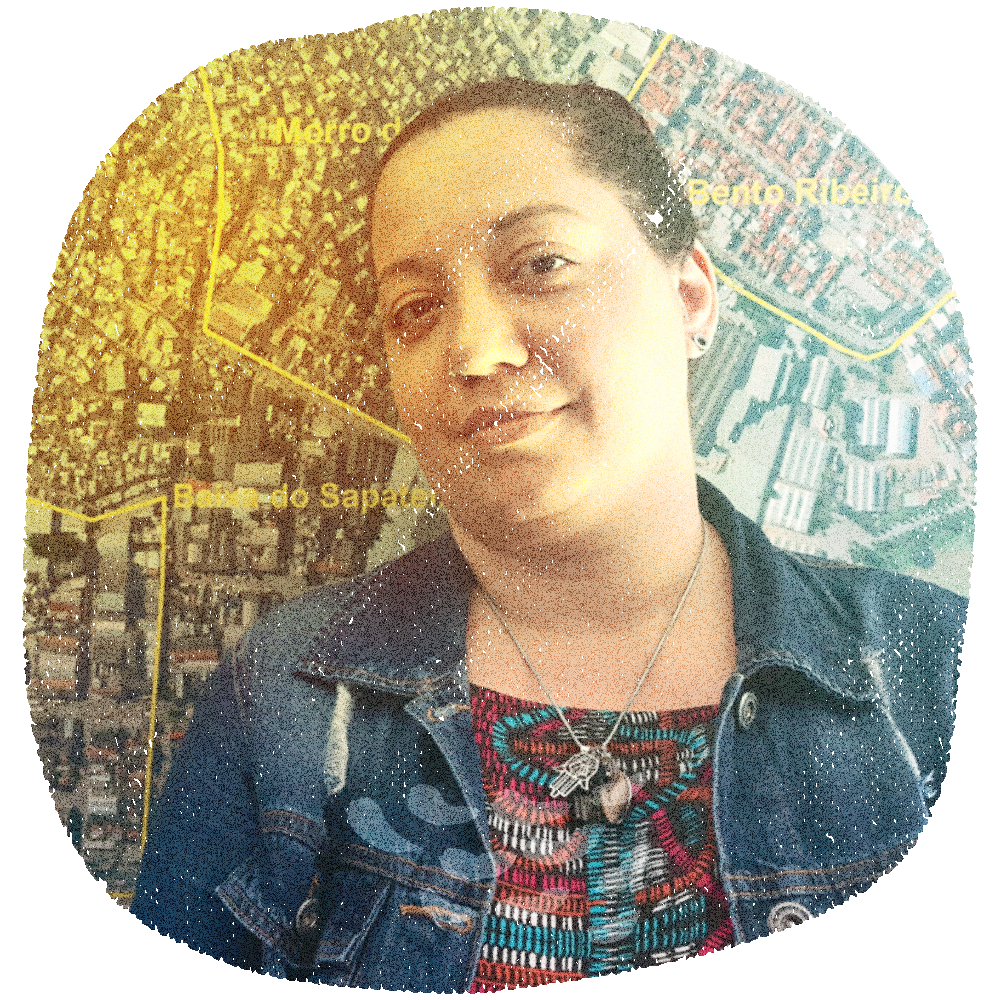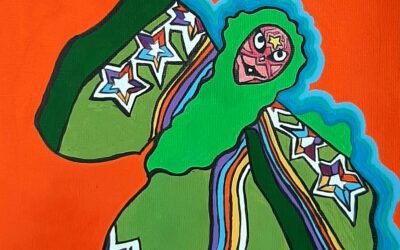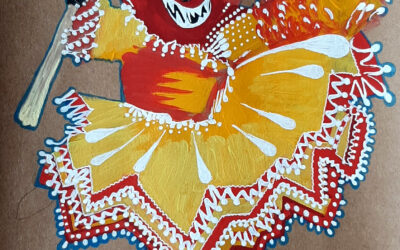
Bate-bolas: Thunder Messengers
While getting lost in the curves and crossroads of the favela, I found my way. And it is only today that I remember the fears, but also the joys of my strolls. On hot afternoons in my childhood during the Carnaval na Maré, masked beings would appear with balls hitting the ground with a thundering rhythm. Then the commotion of screams, fireworks and the sound of the balls began to transform fear into joy. My shocked gaze wavered between the door and the windows – mesmerized – though I didn’t understand the tremendous explosion of colors, shapes, lights and sounds that broke the night. Fear also arose, but the curiosity and enchantment were greater: a mixture of nameless emotions.
It’s been said it all started with the influence of Portuguese colonization and other popular festivals, such as the Folia de Reis (a joyful celebration of the Three Kings). There is another version of the story that the playful Bate-bolas tradition started with the immigrants, who had the idea of going out into the carnival revelry dressed as clowns, a word which later became Brazilianized to clóvis.
There is also the version that the first carioca Bate-bolas arrived in the neighborhood of Santa Cruz, a neighborhood in the western part of Rio de Janeiro that housed a slaughterhouse and a zeppelin hangar in the 1930s. There are records that some German military personnel arrived on airships and helped to give these revelers their name.
But I prefer to believe that this character emerged from the villages of freed slaves who were sometimes unjustly pursued by the police; they dressed in costumes to be able to celebrate freely during carnival and used the bate-bola to protest oppression. This version is so representative and it says much about the transgressive figure of the bate-bola, an Ésú without a name, a king without a crown who fights for freedom.
With their colorful clothes, in a kind of battle, they roam the alleys and streets of the favelas and suburbs of Rio. Between the balls in their hands and their umbrellas they strike the asphalt and the sky.
A tradition that passes from father to son, organized in groups, they come out to the sound of sambas, choreographed dances called marchinhas and funks specially composed in honor of the groups. Some groups have names linked to feelings and or actions such as: Humility, Emotion, Explosion, Joy, Good Taste, Tyranny, and Fascination… But there are also characters like Mario, Kuka, Charade, Pinocchio, Emilia, Saci, Riquinho, Garfield, Fred and Jason, Medeia, Shiver, Vampirinho… and other names like Troop of the Alley, Total Dolly, Noise, Bombardment, The Abused Ones… Mixture.
In this dance without a name, without right or wrong, my heroes or heroines arise; they are also anti-heroes, those who leave their feathers and glitter on the edges of the broken city on Ash Wednesday. Their costumes will be put to sleep for another year, when they will be reborn. For me and many others this very important figure heals wounds and regenerates bodies to continue the fight after the ashes; but it is also a crack showing that life exists in the margins.
Lives that matter as much as the many denials and prejudices against them. Life that makes Art that transforms into Culture in Memory… that opens the road to the future. In a present of hope moved between the crossroads the only solution is to dress up as Bate-bolas and go out thundering.
Translation by Alejandra Yacovadonato.
Rolê-Holi Project Description
Rolê-Holi [ten artifacts] Reflections from ten curator Suélen Brito from her experience working on Rolê Holi – a project of (re)connection in the search to break the artistic barriers imposed by the Brazilian colonialist system and to research the cultural expressions...
Folia de Reis: Festival of Kings
Rolê-Holi [ten artifacts] Reflections from ten curator Suélen Brito from her experience working on Rolê Holi – a project of (re)connection in the search to break the artistic barriers imposed by the Brazilian colonialist system and to research the cultural expressions...






